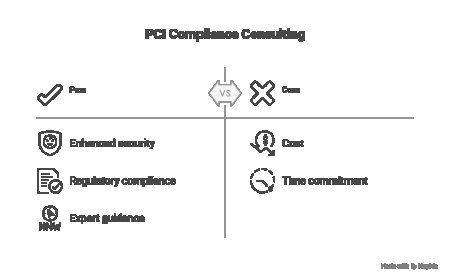Top 10 Must-Study Subjects for GATE Electrical Engineering to Score Maximum!
This article will walk you through the top 10 subjects that each Electrical Engineering student needs to prepare in order to ace GATE with confidence. If you are pursuing online GATE coaching, this book shall be the perfect guide to your study strategy.

Cracking GATE Electrical Engineering is not an easy job that needs hard work aloneit needs the right strategy, conceptual strongholds, and laser-sharp focus on high-yield topics. With increasing competition every year, the candidates who wish to secure M.Tech admissions or PSU placements need to ensure that they study the most crucial subjects in-depth.
If you are in the initial preparation or revision phase, this detailed guide will help you identify the most important topics that can easily increase your score. Supported by professional expertise and strategic advice, this article will walk you through the top 10 subjects that each Electrical Engineering student needs to prepare in order to ace GATE with confidence.
If you are pursuingonline GATE coaching, this book shall be the perfect guide to your study strategy.
1. Electric Circuits The Backbone of Electrical Engineering
Electric Circuits is the most fundamental of subjects and has equal weightage in GATE EE. Topics such as Thevenin's and Norton's Theorems, transient analysis (RL, RC, RLC circuits), mesh and nodal analysis, and frequency response are actually very important.
This is both a scoring and a problem concept area, and hence an absolute must in both concept and numerical problem categories. To have command over this is to be able to solve problems very quickly and accurately.
2. Signals and Systems A Conceptual Powerhouse
Signals and Systems is generally underrated by students, but achieving a grasp of this will earn you valuable marks. Learn about continuous and discrete-time signals, the Laplace transform, Z-transform, Fourier series, and categorizing systems.
This topic tests analytical skills and comprehension of mathematical models. Previous year questions and mock tests given by authentic online GATE coaching websites will go a long way in improving accuracy.
3. Control Systems A High-Yield Scoring Subject
Control Systems is a consistent paper in the GATE EE with high to moderate weightage. Important subtopics include block diagram reduction, root locus, Bode plots, time-domain analysis, and state-space representation.
A good grasp of Control Systems helps not only in GATE but also in PSU interview questions. Practice numerical-based problems rigorously to gain speed and confidence.
4. Electrical Machines The Heart of E
Electrical Machines is a big but crucial topic. You have to learn DC machines, induction motors, synchronous machines, and transformers. The topic is concept-oriented but has numericals based on equivalent circuits, torque equations, and testing methods.
If you are learning online GATE coaching, make sure that you learn detailed machine theory classes and solve sufficient practice questions to develop a strong foundation.
5. Power Systems Extremely Important for Problem Solving
Power Systems is a high-value and repeating section in the GATE EE. Special focus topics are per-unit systems, load flow analysis, fault analysis, power system protection, and stability studies.
Due to its theoretical complexity, it is best to use visual diagrams and simulation software during learning. Membership in organized online GATE coaching can make this topic more accessible with animated tutorials and live classes for solving.
6. Power Electronics A Topic of Application Orientation
Power Electronics addresses devices like SCR, MOSFETs, IGBTs, and circuits like choppers, inverters, rectifiers, and converters. Since GATE has conceptual as well as numerical type questions based on this topic, practice it well.
The topic finds industrial use too, and thus, PSU and M.Tech interview preparation needs it. Good GATE online coaching provides well-illustrated content and practice tests to gain better control over the topic.
7. Electromagnetic Fields Theoretical but Important
Although a bit theoretical, Electromagnetic Fields is an important topic that holds good weightage. Concentrate on Coulomb's Law, Gauss's Law, Maxwell's equations, and transmission lines.
Most students avoid this topic due to the complexity, but with visual learning tools and concept classes, especially online GATE coaching, it is easier and fun to learn.
8. Digital Electronics Fast Marks with Practice
Digital Electronics can yield you quick and easy marks if properly prepared. Focus on logic gates, multiplexers, decoders, flip-flops, counters, and Boolean algebra.
This is quite a small subject, but one that frequently appears in the GATE exam with 34 questions. Practicing with previous year questions will improve your speed and accuracy.
9. Analog Electronics Concept Meets Calculation
Analog Electronics is a part of the syllabus that consists of subjects such as diodes, BJTs, MOSFETs, operational amplifiers, and amplifier circuits. These tend to be asked in both theoretical and problem-based forms.
Understanding the waveform behavior and working regions is crucial. Don't ignore the topic, assuming it to be difficultdetailed sessions provided by your online GATE coaching can render the topic palatable and scoring.
10. Engineering Mathematics The Key to High Overall Marks
Mathematics is generally the clincher in GATE. Topics like Linear Algebra, Calculus, Differential Equations, Probability, and Complex Variables constitute most of the paper.
It's not only about answering the questions but also managing time. Math questions are all numbers and provide you with sure-shot marks if you have prepared thoroughly. Practice formulae daily and try at least 1015 questions from each topic on a regular basis.
Bonus Tip: General Aptitude Easy but Noteworthy
Even though not a part of the technical syllabus, General Aptitude accounts for 15 marks of the paper and typically goes unnoticed. Logical reasoning, grammar, sentence correction, and numerical ability are areas that have to be well practiced to get an upper hand over others.
Final Thoughts
Preparation for GATE Electrical Engineering is not a sprint but a marathon. Though hard work is unavoidable, intelligent strategy works wonders. By emphasizing high-weightage and conceptual subjects listed above, you not only put yourself in the driver's seat for scoring well but also organize your preparation more streamlined and efficiently.
Depending on the right resources, like systematic online GATE coaching courses, mock tests, video tutorials, and performance analysis, you can actually accelerate your learning curve. These resources not only help you save time but also provide expert instruction to stay on course.
GATE is not about memorizing factsit's about carrying out concepts correctly. Hence, be consistent, be curious, and focus on learning the topics that are of utmost importance.






































